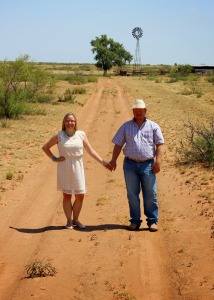October is an exciting month for me and will be culminating in a couple of major changes. I will be getting married at the end of the month!
As a result of the upcoming nuptials, I will be transferring office locations. I will still be working in my same role with Texas A&M Agrilife Extension as the state-wide Extension Agricultural Law Specialist, but I will be moving my base office to our Amarillo District Center. It is a wonderful opportunity for my husband and I to live in the same zip code and for me to continue my work with agricultural producers across the State of Texas. The only changes for you all will be my contact information, which you can find on the “Contact” tab or by clicking here.
With that bit of housekeeping out of the way, on to the major ag law stories in the news this week!
* Petition Seeks Endangered Species Status for Lizard Found in Eagle Ford Shale Area. The San Antonio Express News highlighted an issue that has been a bit off the radar in South Texas. Several years ago, an environmental group filed a petition with the United States Fish and Wildlife Service seeking to list the spot-tailed earless lizard as endangered or threatened under the Endangered Species Act. In 2011, the USFWS found there was substantial information that listing the species may be warranted, but to date no decision has been made. This proposal is particularly concerning for oil and gas companies, as the lizard’s habitats includes portions of the Eagle Ford Shale, one of the most productive oil and gas areas in the country, producing nearly 1 million barrels per day of crude oil. Attorneys believe that, if listed, this could have significant impacts on the Texas oil and gas industry. [Read article here.]
*Texas Supreme Court to Consider Bragg v. Edwards Aquifer Authority. Texas’ highest court has requested briefing on the merits in the controversial groundwater case, Bragg v. Edwards Aquifer Authority. As you recall from this prior blog, both the trial court and San Antonio Court of Appeals found that the Edwards Aquifer Authority’s denial of permits for Mr. Bragg to irrigate his pecan orchards constituted a taking of private property for which he is owed compensation. Also in dispute is the amount of compensation owed if Mr. Bragg’s takings claim is upheld. The briefing in the case is scheduled to be completed by December. [Review docket here.]
* Why Denton Should and Should Not Ban Fracking. The Texas Tribune often does an interesting series called “Trib Talk” where two writers take opposite sides of a controversial issue. This week, the topic was the proposed fracking ban in the City of Denton, which will come before voters next month. Adam Briggle, Vice President of the Denton Drilling Awareness Group, wrote on why he believes fracking should be banned, focusing primarily on potential accidents, air quality, and the fact that the proposed ban does not prohibit all drilling, only that using fracking. [Read article here]. Taking the other side of the argument was Ed Ireland, Executive Director of the Barnett Shale Energy Education Council. He argues against the fracking ban by focusing on private property rights, economic damage, and expensive legal challenges to the law almost certain to face Denton taxpayers. [Read article here.] The New York Times also published an article discussing this issue and outlining arguments from both sides. [Read article here.] I found all of these articles to be a very interesting insight to the arguments on both sides of this hot button issue.
* Update on Proposed San Antonio Water Pipeline Project. As a follow up to the blog I posted earlier this week discussing the proposed water pipeline from Burleson County to San Antonio, the Texas Tribune published a Q&A Session with San Antonio City Councilman, Ron Nierenberg. Not surprisingly, the pipeline was the central topic of conversation. [Read article here.] Additionally, on Wednesday, numerous residents voiced their opinions–both for and against–this project at a City Council Meeting. [Read article here.]
* American Bar Association Highlights Need for Rural Lawyers. The American Bar Association Journal published an article last week discussing the need for rural attorneys. Interestingly, although 20% of Americans live in rural areas, only 2% of lawyers practice in rural America. The article featured a discussion of a small town in rural North Dakota, whose only attorney retired last year. Last year, the city was able to attract two young lawyers after offering to pay for office space and other business expenses. Several law schools and bar organizations in the Midwest have been formed to encourage lawyers to return to rural areas. One example is South Dakota’s Rural Attorney Recruitment Program that provides monetary incentives for attorneys who move to rural areas and set up shop. I found it telling that these issues are not located in one part of the country–the article discussed shortages in the Midwest, the south, and in Maine. [Read article here.]












